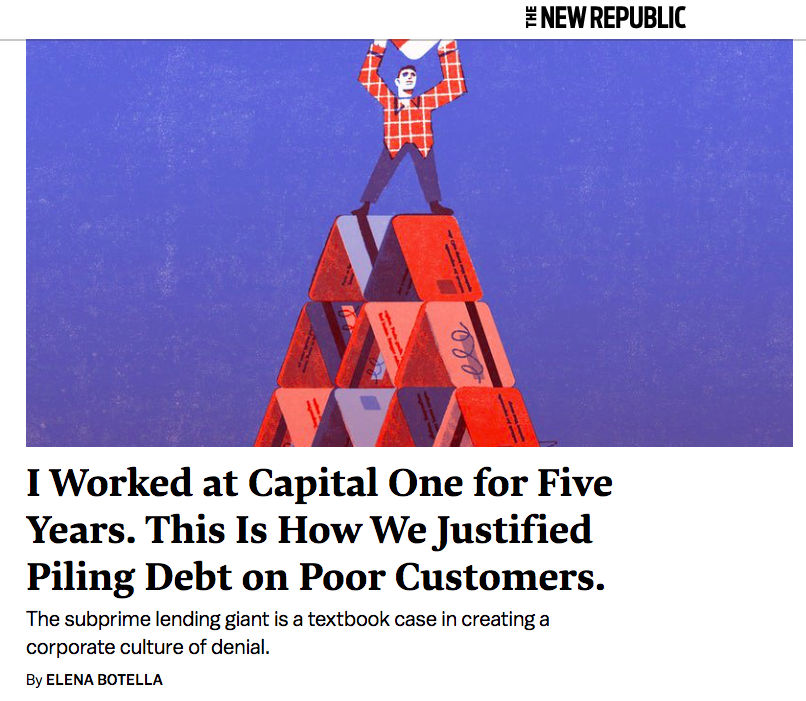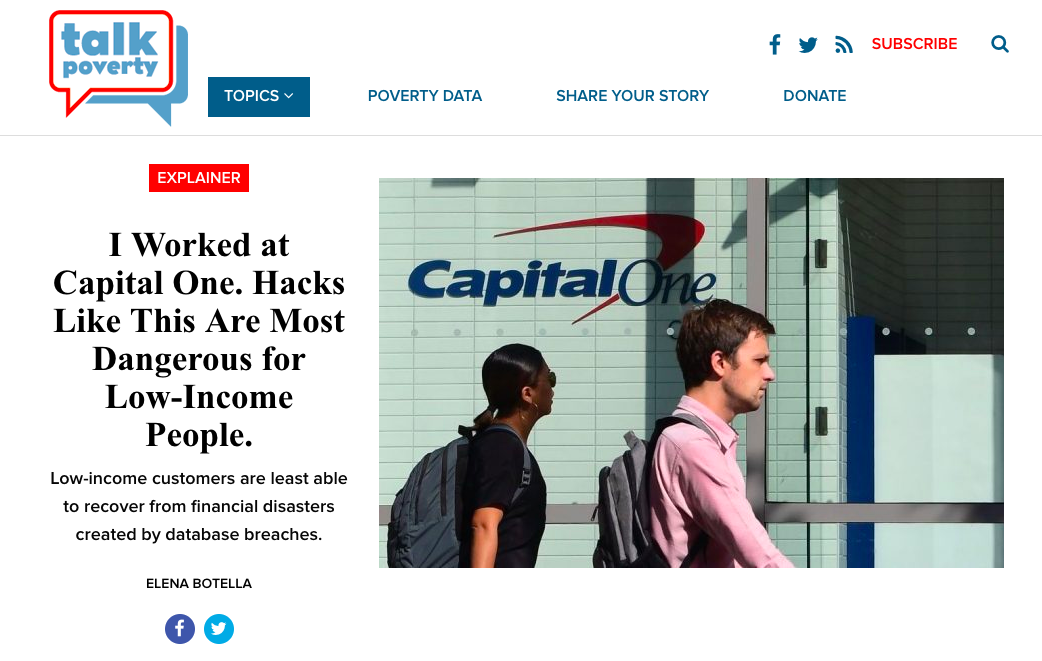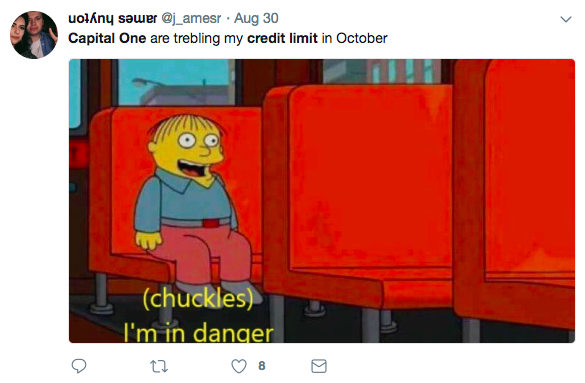For The New Republic, I wrote about how euphemism, jargon, and data science all help bankers at places like Capital One distance themselves from their customer’s pain. When I talk about “pain,” here, I mean a few different things. Consumers turn to credit cards because they can’t afford what they want or need: a condition that is intrinsically uncomfortable. In some cases, credit cards may help the consumer a little bit, in other cases, they make the financial instability Americans face even worse: in both cases, that suffering is ignored.
-
-
Two takes on the Capital One data breach
For TalkPoverty, a publication of the Center for American Progress, I wrote about the fact that the Capital One breach put Capital One’s secured card customers at the greatest risk. Secured cards give people who ordinarily wouldn’t be approved for credit a chance to put down a security deposit and get a credit card — but often at a high price, since 3 in 4 secured card customers end up carrying a revolving balance, paying late fees and interest rates of 25%+ to borrow what is effectively their own money. TalkPoverty: I worked at Capital One. Hacks like these are most dangerous for low-income people. On LinkedIn, I express the…
-
“I’m not falling for your tricks” and other mixed reactions to credit limit increases
All it takes is a quick search on Twitter to see that credit limit increases drive incredibly strong and oftentimes mixed emotional reactions for Americans. To clarify, when I say ‘credit limit increase’ here, I’m talking about when a credit card issuer raises the limit of how much a customer is able to spend or borrow. In theory, having access to more credit — that you’re under no obligation to use — seems like it would be a strictly good thing. It’s there if you need it, and if you don’t use your higher credit limit, your credit score will typically go up (this article explains why). But clearly, many…


